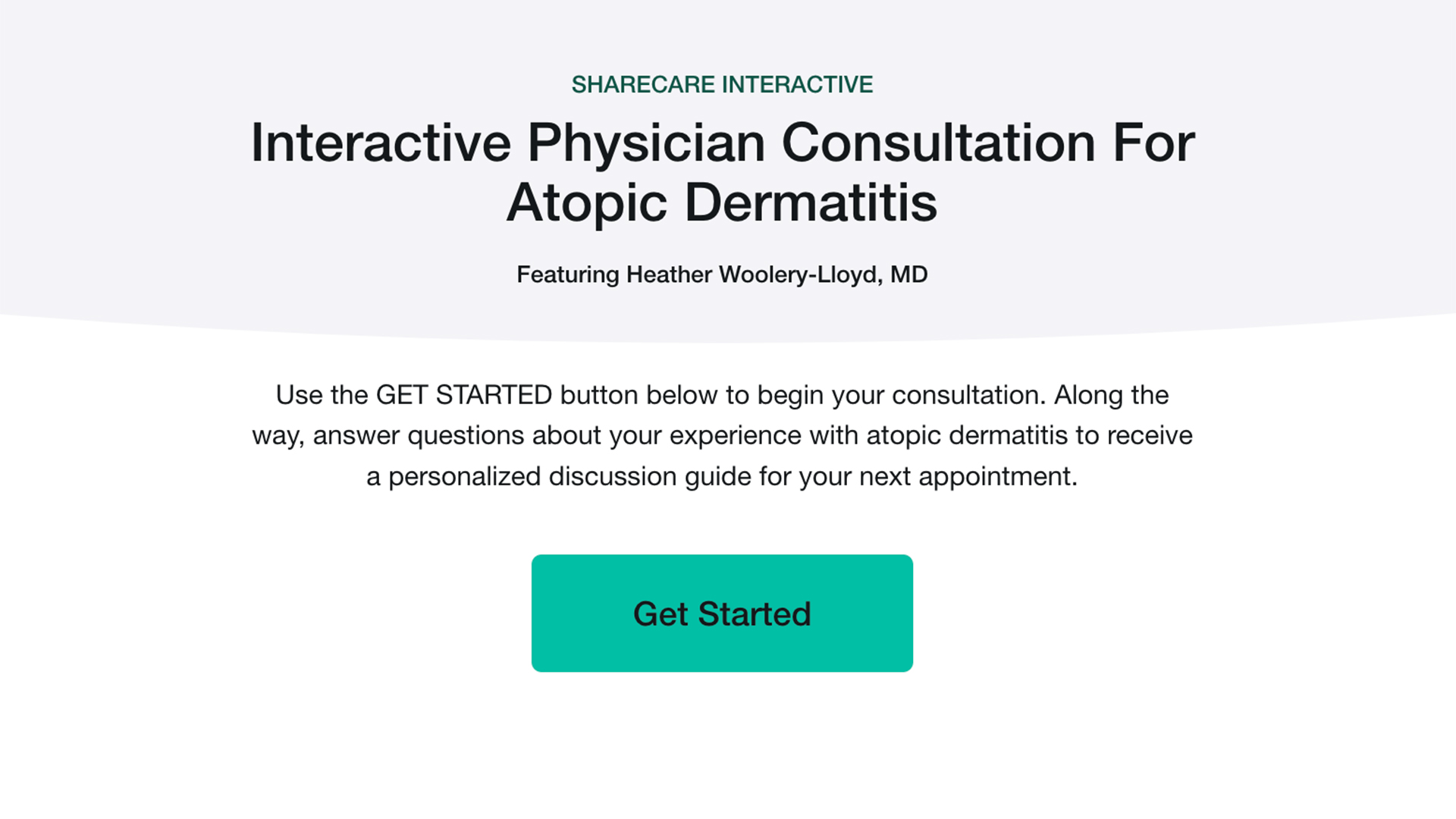Updated on October 23, 2024
From navigating cooler seasons to treating flare-ups in the workplace, atopic dermatitis patients are finding creative ways to manage their condition.

Transcript
So now we're going to move into how atopic dermatitis affects every aspect of our lives.
[MUSIC PLAYING]
How does atopic dermatitis affect your social life, your personal life, dating or work life, family life?
The biggest area it's affected is just my career as a physician, having to constantly wash my hands,
sanitize and things like that. I am a pharmacist by career, but I have a side business
that really came from my need to find something that worked for me. I work for an asset management group, so I'm in finance.
I'm just typing all the time. When I get a flare-up, I always have it on my knuckles, which makes me crazy, but it's very stiff.
[INAUDIBLE] understand, but since flare-ups do happen often unexpectedly, they just kind of be like, hey, just go through it, work through it.
I'm like, I'm in pain right now. Why don't you understand that? It definitely impacted my social and personal life,
especially when it came to dating and feeling confident in my own skin. There has been a time where atopic dermatitis has brought
me down to a shell of a human. That's when I truly reached out to my support system.
Our next thing we'll talk about are the seasons, because I know, for my patients, I'm in sunny South Florida, hot, humid climate.
I would say my worst seasons are the spring and the fall. Fall and the spring for me are awful, especially
with the pollen in the spring. I can tell you when the pollen is about to fall and when the flower is about to bloom.
The cool humid tends to be a little bit worse because there is some drying that I have.
Where would you like to be with your atopic dermatitis in five years? I think, in five years, I just want progress to be made.
Doesn't have to be perfect, but I think just the anxiety, I would love for that not to be part of the plan.
I feel like I'm there now almost, but it's really loving myself with eczema, without eczema,
just truly loving who I am, living life to the absolute fullest, doing what I love to do. I would love for my atopic to be healed.
I feel like I'm getting there and figuring things out for myself. I would love for it to be more of an afterthought,
and I would love to be part of the solution, at least for physicians and other health care professionals
to find something that still keeps our hands clean and sanitized, without stripping all of the moisture
from our hands. I've become a lot more comfortable with sharing it.
And I hope that that continues. I just hope that I'm at least able to have the same level of hope in five years about managing
it and treating it. Thank you all so much for chatting with me today. I learned a lot, as a dermatologist who sees a lot of patients with eczema.
And I'm so thankful for all of you for sharing your stories. And I know that your stories will really




